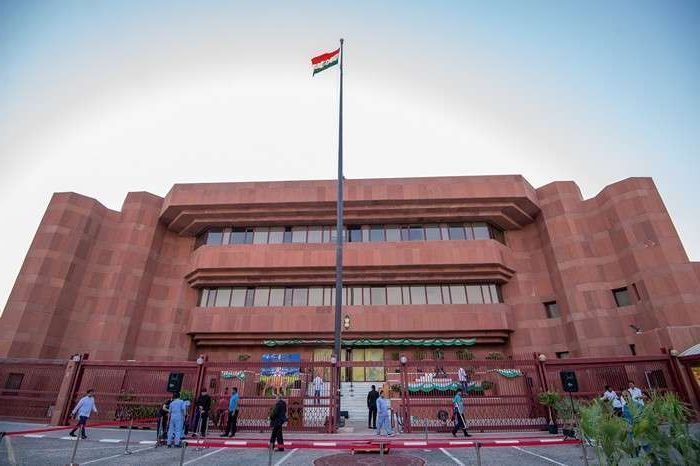As the world sits on the fence, watching escalating tensions between Ukraine and Russia, Indian students in the capital city of Kyiv, have been issued an advisory to leave Ukraine “in the interest of their safety.” It is the third such advisory in the past week.
The notice follows Russian President Vladimir Putin’s decision to recognise the independence of Moscow-backed breakaway regions in eastern Ukraine. Early Tuesday morning, Putin’s telecast went live, acknowledging the sovereignty of the Donetsk and Luhansk regions in the industrial Donbass province of Ukraine.
New Delhi has repeatedly said that one of its priorities is ensuring the safety and well-being of more than 20,000 Indians in Ukraine, including professionals, businessmen, and some 18,000 students. Control rooms have been established at the embassy in Kiev and the external affairs ministry in New Delhi to help the Indian nationals.
Air India will operate three flights on the Kiev-Delhi route on February 22, 24, and 26 because of the growing demand from the Indian community and students amid the mounting uncertainty.
“Students are advised, in the interest of their safety, to leave Ukraine temporarily, rather than wait for an official confirmation from universities [regarding their classes],” the Indian embassy said in a brief statement posted on its social media accounts.
The Indian Embassy issued two advisories since February 15, following a spike in concerns over the situation in Ukraine. On Sunday, India advised its nationals, especially students and others whose stay is not essential, to leave Ukraine even as the government decided to pull out the families of embassy officials.
Indian officials, however, are still in place and the embassy continues to function and monitor developments closely, people familiar with the matter said.
On Tuesday, the Indian envoy to the United Nations, TS Tirumurti, expressed deep concern over the escalation of tension along Ukraine’s border with Russia during an emergency session of the UN Security Council. He called on all parties to exercise “utmost restraint” and to step up diplomatic efforts to find a “mutually amicable solution” to the crisis in eastern Europe.

















